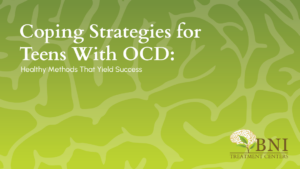Parents of teens who engage in self-harming behaviors usually had no clue that it was going on. Teens who do self-harm are usually discreet about these practices, hiding the signs of self-injury under long sleeve shirts and pants. But many parents first become curious that something might be going on when their adolescent refuses to wear attire appropriate for hot weather, instead sticking stubbornly to long sleeves even in sweltering weather. The teen may avoid any event that would involve wearing a swimsuit.
Teenage depression and self harm is on the rise in the nation. Increasing rates of each, along with rising suicide rates, act as a clarion call to parents, teachers, and physicians to help kids struggling with mood disorders or emotional problems. That so many teens are resorting to such dire behaviors to find relief is something that must be taken seriously. In some cases, teenage depression and self harm might reach a state of urgency, necessitating treatment at a residential mental health program designed for teens. These programs can provide the focused therapy that the adolescent needs, to examine the sources of emotional pain, to process a life crisis, and to learn new, healthy coping techniques.
About Teenage Depression and Self-Harm
Emotional mood swings are common among adolescents. Everyone remembers how dramatic everything seemed during those years, with peer issues, budding romances, school situations, and family problems sometimes stoking feelings of depression and/or anxiety. This stage of life involves physiological changes due to puberty, with hormonal fluctuations only exacerbating moodiness.
Today’s teens have exposure to the potentially destructive effects of social media; social stigmatizing and peer bullying directly related to increased depression among the youth. Teens suffering from depression may not know how to reach out for help, or may feel that no one cares about their pain. They may take to misguided measures to self-medicated, including seeking risky behaviors, substance abuse, or self-harming.
All of these maladaptive responses to depression will only add to the despair, and the negative consequences will begin to pile up. Teens may engage in self-harming as a way to release the overwhelming emotions they are struggling with, or to gain a sense of control in difficult situations. Self-harm is usually not about seeking attention or trying to commit suicide, but is more about a type of coping skill. These teens who do exhibit self-harming behaviors are, however, at a higher risk of suicide. With teen suicide now the 2nd leading cause of death for youth ages 12-18, there is certainly a need to adequately address the issues behind a teen’s self-harming behaviors.
Treating teenage depression is the first step in stemming the self-harming and self-destructive behaviors. Once the depression is addressed, the thought and behavior patterns involved with self-harm can be treated as well.
Types of Teen Self-Harm
There are many different types of self-harming behaviors. At the foundation, self-harming behaviors encompass those behaviors that are self-mutilating or self-injurious to the teen. Some of these might include:
- Cutting
- Burning with candle wax, matches, or lighters
- Branding
- Head-banging
- Strangulation
- Pulling hair out
- Picky skin off
Although a parent’s first knee-jerk reaction to the realization that their child is harming themselves would be shock and horror, it is important to exercise restraint when confronting the teen about the self-harming behavior. A calm, compassionate discussion about the purpose of the behaviors, while also attempting to learn the cause of it is far more productive.
Treatment for Teenage Depression and Self-Harm
When first learning your teen is struggling with depression and self harming behaviors it is important to have them evaluated by first a medical doctor, and then, if necessary, a psychiatrist. The teen may be place on medication for the depression, but for sure they will be prescribed psychotherapy to try and work through their emotions and psychological issues. Some teens, however, even when being seen on an outpatient basis for depression and related self-injury are not progressing clinically. Their symptoms may not be subsiding and the behaviors are not improving as expected. In these cases, a residential teen mental health center may be the better treatment option.
Residential treatment allows enough time for a thorough assessment of the factors behind the depression and self-harm. The teen may have deep-seated trauma that they have not yet processed. The inpatient program provides a much more focused and comprehensive approach that is tailored specifically for the teen patient and their unique needs.
BNI Treatment Centers Provides Residential Treatment for Teens in Southern California
BNI Treatment Centers is a leading residential mental health treatment program for adolescents aged 12-17 located in Los Angeles, CA. The residential program provides a safe space away from any people, situations, or things that may be triggering self-harming behaviors. While at the BNI Treatment Centers, teens will be guided through various forms of therapeutic activities that can help them identify the source of their emotional pain in a judgment-free zone. An essential aspect of the treatment will focus on treating the depression while teaching teens how better to cope with stress. The therapists work with the teens to devise a plan to better manage conflicts or pain sources, as well as making adjustments in their social relationships if that is the main source of the depression. For more information about the residential program, please contact BNI Treatment Centers today at (888) 522-1504.



